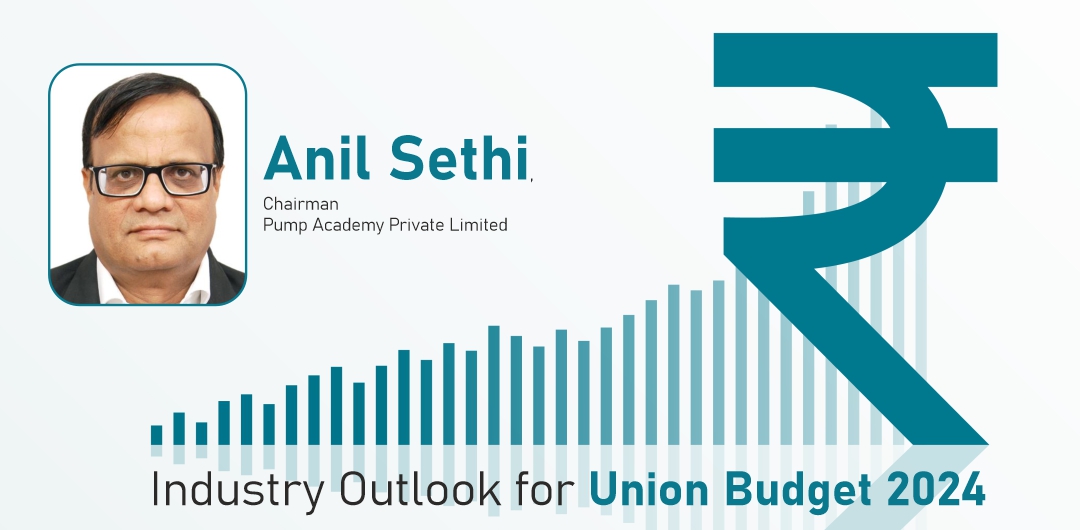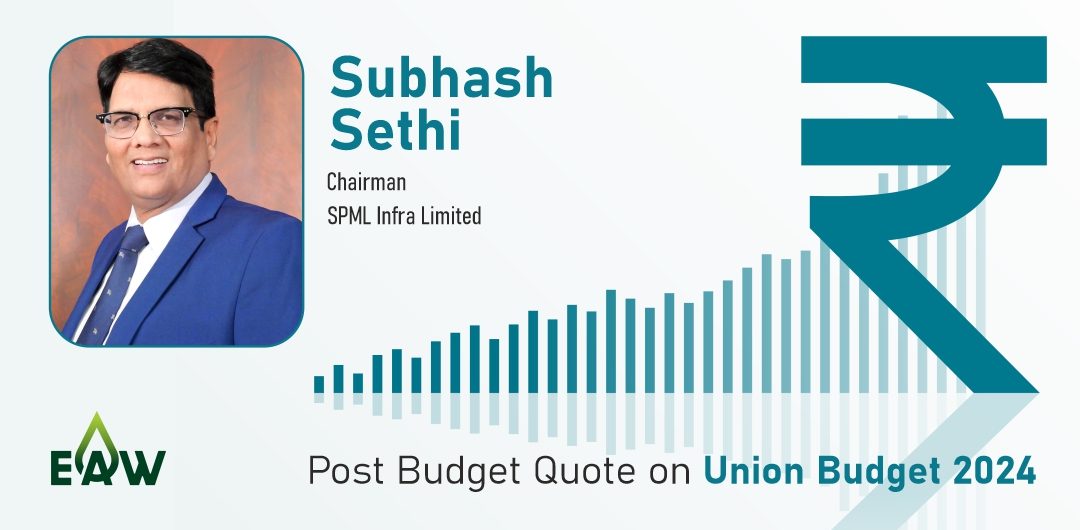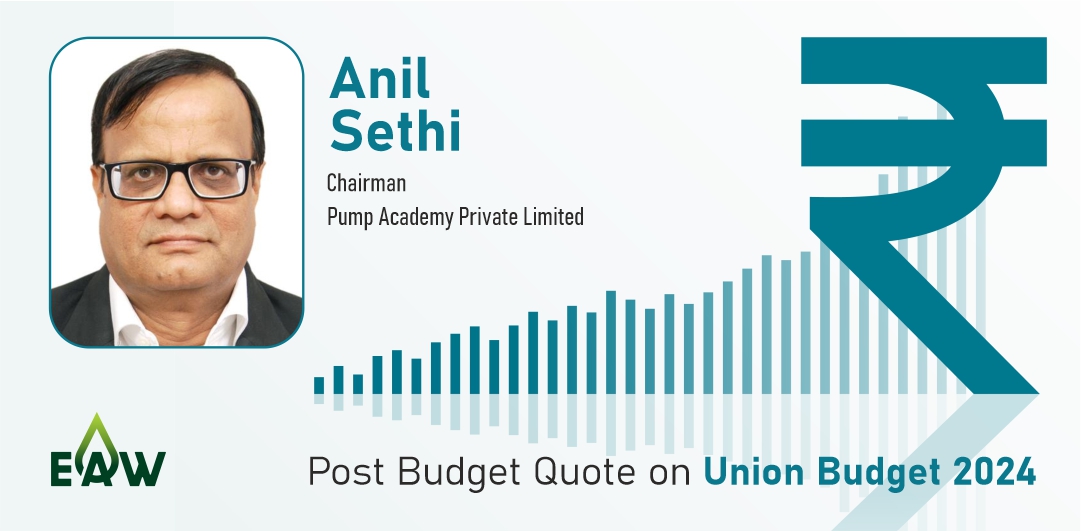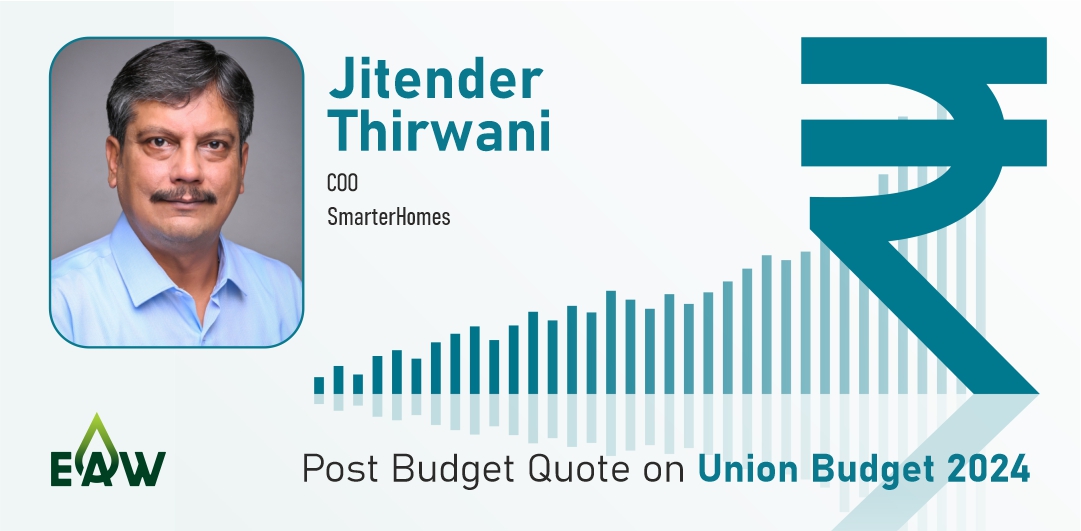Anil Sethi, Chairman, Pump Academy Private Limited
As we approach the Union Budget 2024, there is a pressing need to prioritize the integration of advance technology for improved energy efficiency and the reduction of carbon emissions across all machinery and infrastructure. The Hon’ble Finance Minister should take cognizance of our Hon’ble Prime Minister’s commitment to achieve net-zero emissions for India by 2070, declared at The UN Climate Change Conference in Glasgow (COP26) that brought together 120 world leaders and over 40,000 participants in 2021. This commitment includes obtaining 50% of India’s energy from renewable resources by 2030 and reducing total projected carbon emissions by one billion tonnes by the same year.
To fulfill the visionary goals set by our dynamic leader, two significant tasks lie ahead: the development of renewable energy resources and the reduction of carbon emissions by one billion tonnes within the next six years, upto 2030. As the world’s fourth-largest emitter of carbon dioxide, following China, the USA, and the European Union, India must earnestly address these challenges to meet the ambitious target.
In this context, it is reasonable to create a step-by-step plan for each year, detailing the necessary measures required to reach the set target. Like the Production Linked Incentive (PLI) Scheme, for which the Union Budget 2021-22 earmarked a significant budget of INR 1.97 lakh crore for the 13 crucial manufacturing sectors. Considering the success of PLI scheme, there should be incentives to be announced in the Union Budget 2024-25 for industries and sectors to attain the specified targets for energy efficiency and carbon emission reduction by 2030.
An international research conducted by MDPI has revealed that the pumping systems are responsible for around 20% of the world’s total energy consumption. According to the International Energy Agency, the electricity usage in the water sector constitutes about 4% of the total global electricity consumption. Multiple studies conducted by international agencies emphasize that the energy used in pumping water constitutes a substantial proportion of the total operational costs for water systems.
Setting a goal to reduce energy consumption in water pumping system is crucial. Achieving this objective involves implementing energy-efficient technologies, not only for relieving financial burdens but also contributing to the reduction of carbon emissions from water pumping stations.
As we strive to reduce one billion tonnes of carbon emissions by 2030, modern technology emerges as a trusted solution capable of contributing to this goal. Operating on advanced technology, such solutions play a pivotal role in significantly lowering the carbon footprints of pumping stations. Conservative estimates suggest that implementing optimization technology across all water pumping stations in India can save almost 3.06 million tonnes of carbon emissions annually, aligning with our visionary leadership’s commitment.





